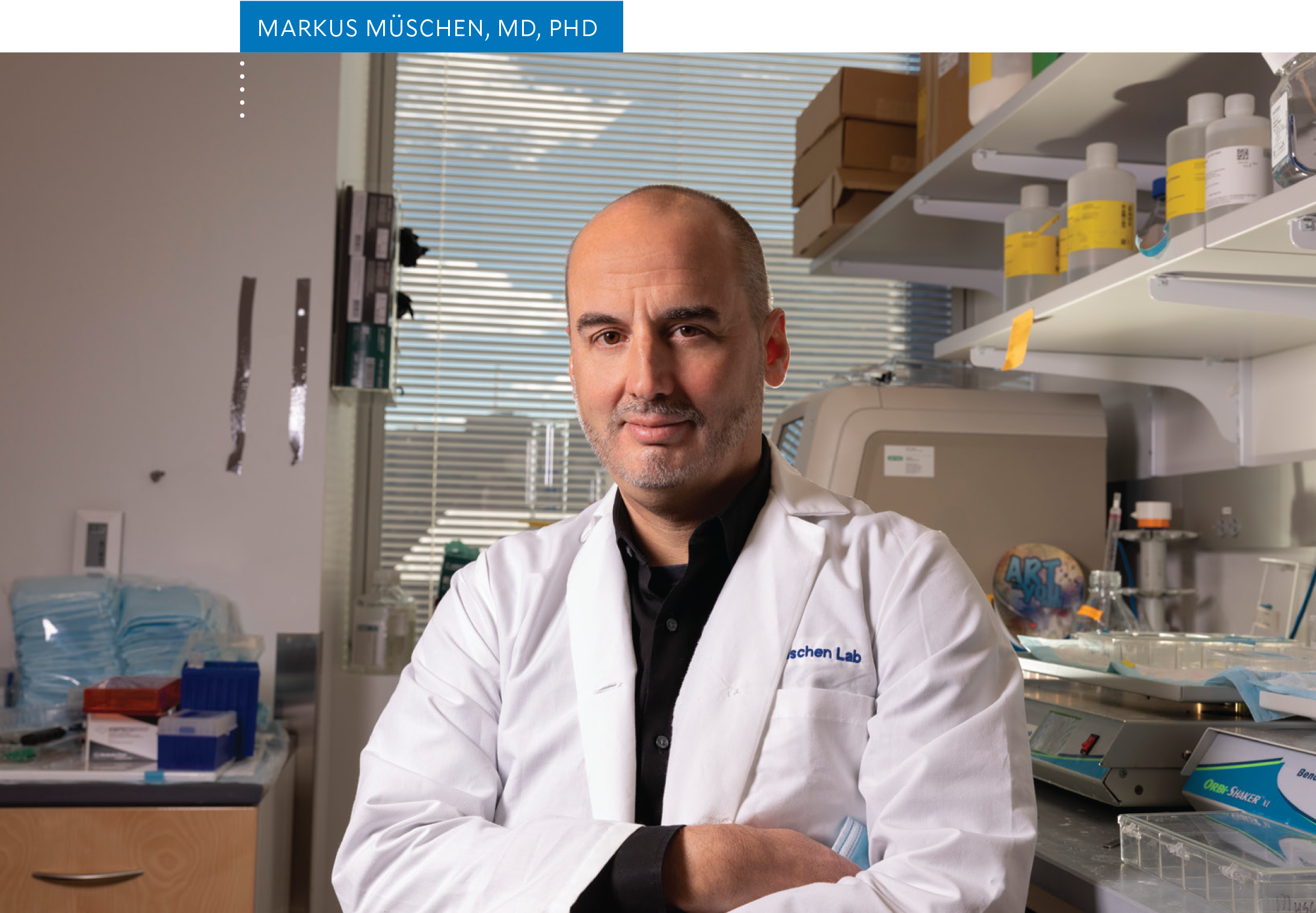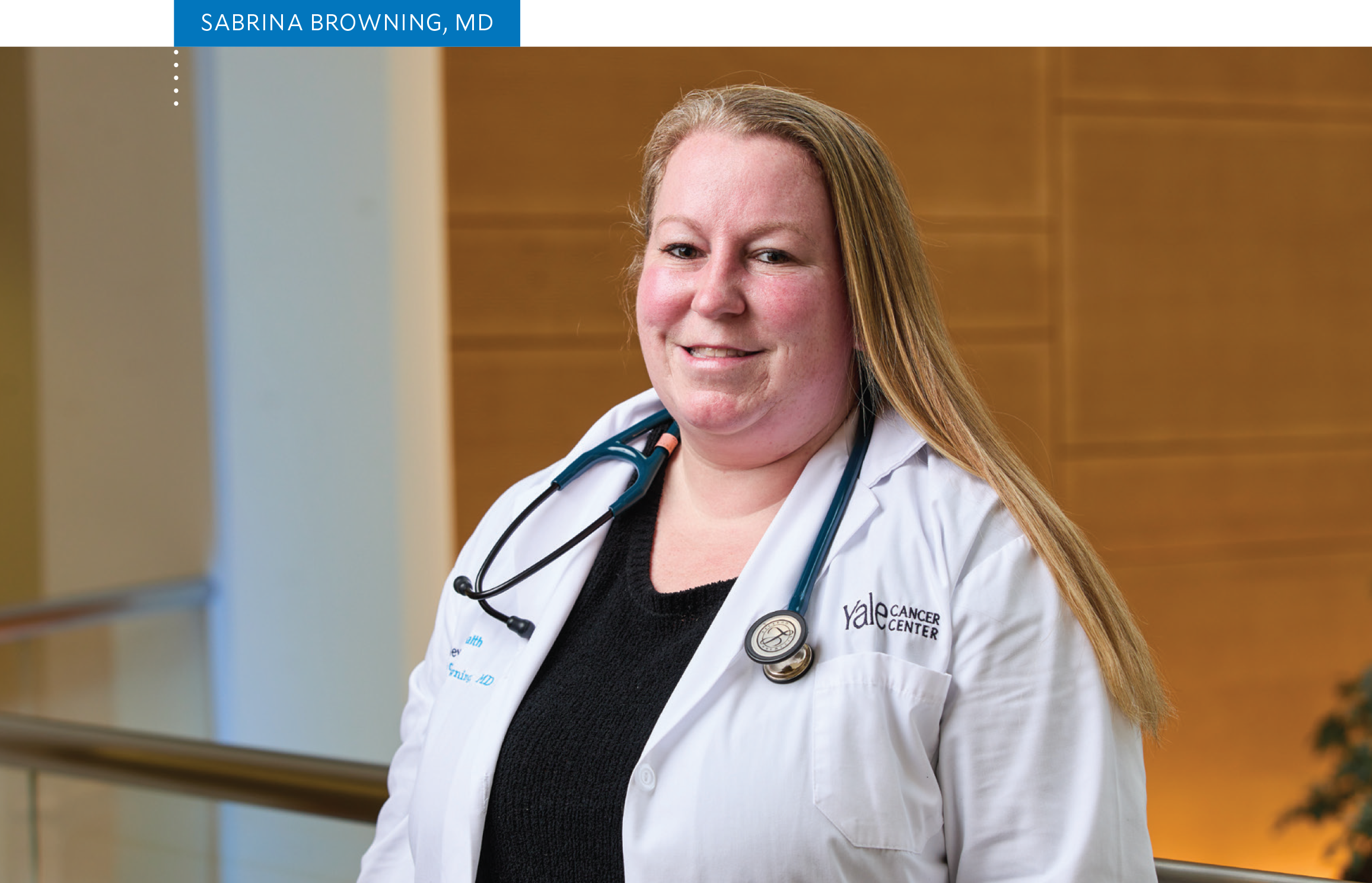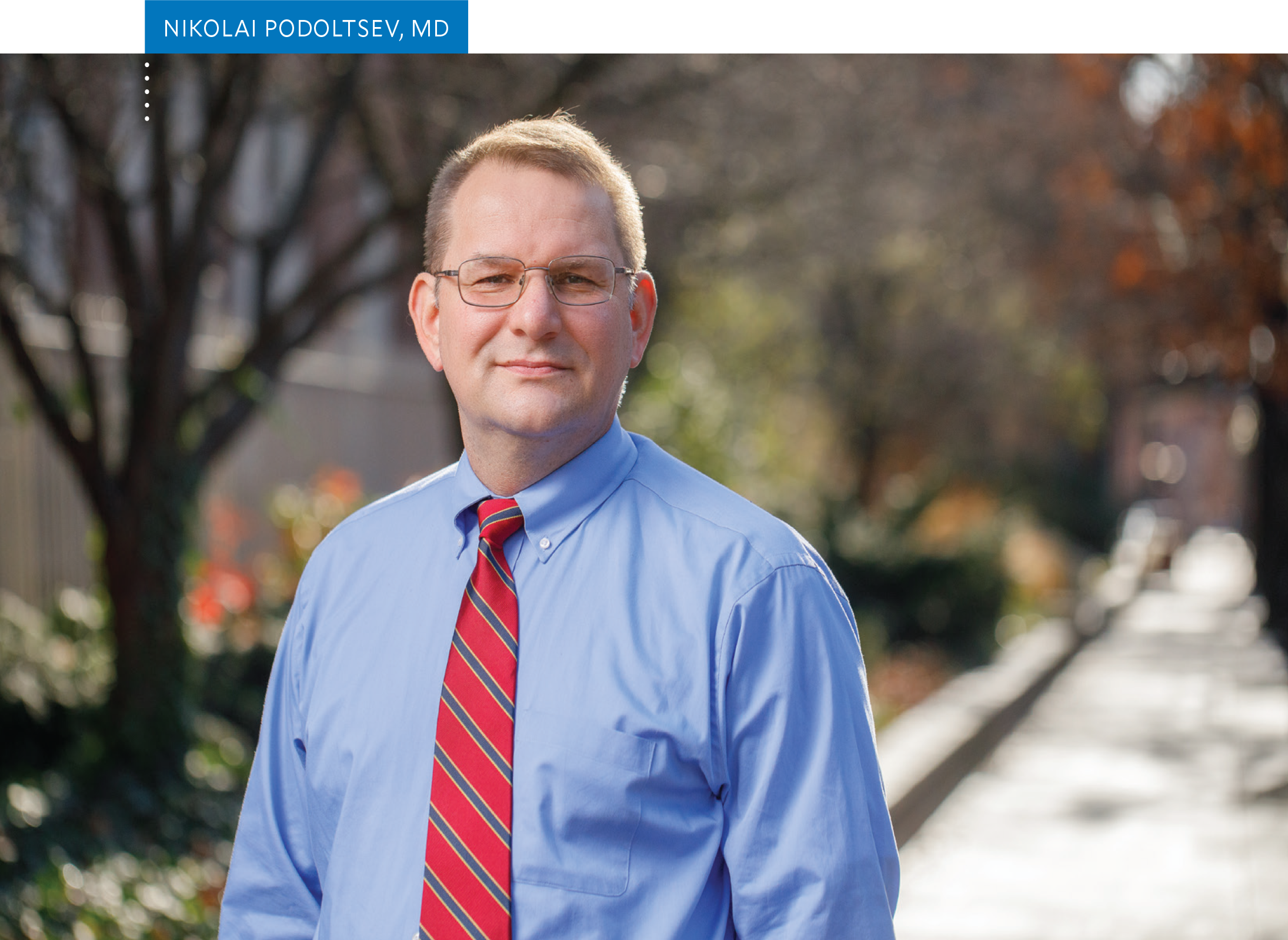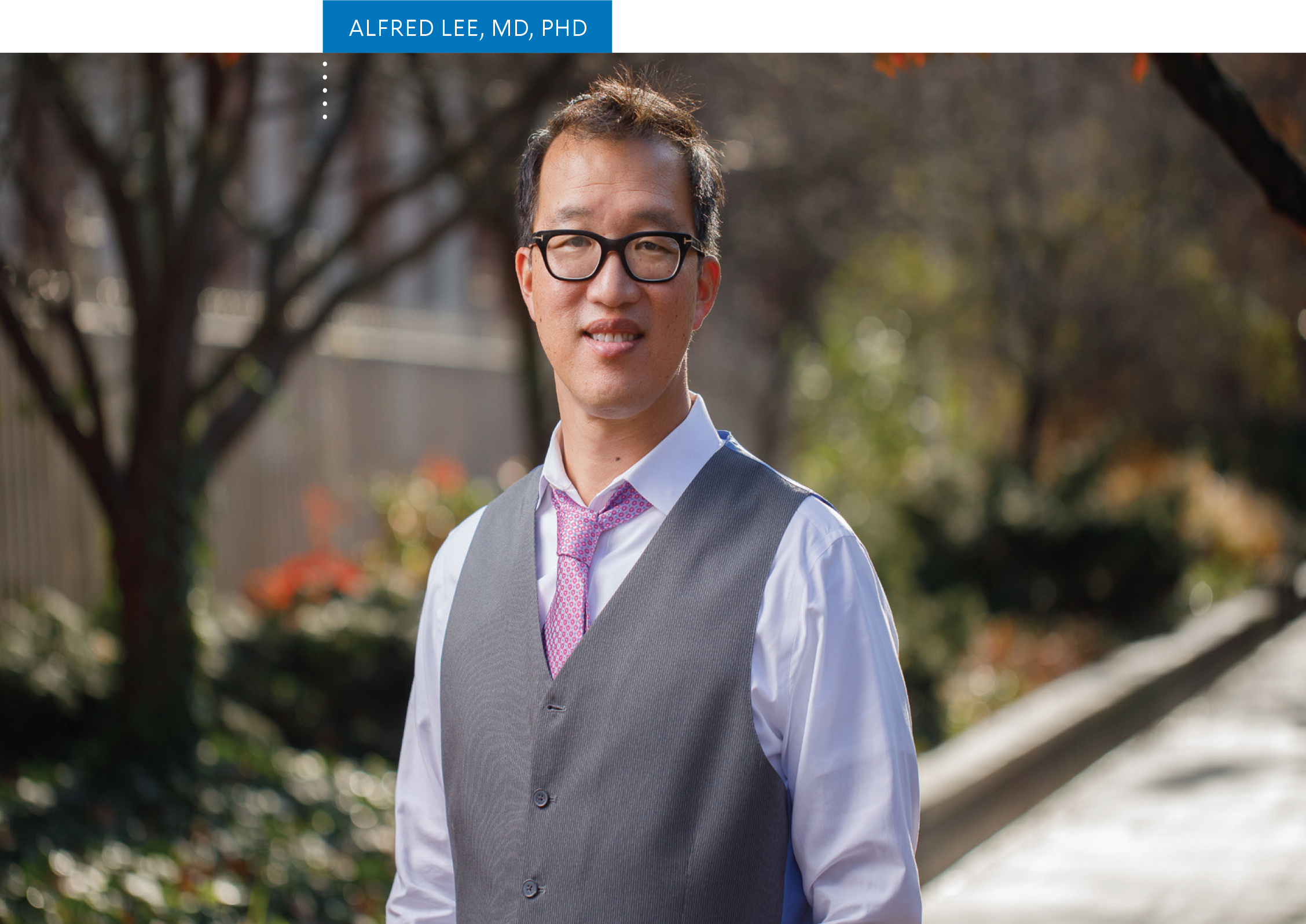Update from Section Chief Stephanie Halene, MD, PhD
The Section of Hematology members provide evidence-based compassionate care to patients and families; conduct basic, translational, population, and clinical research; design programs to promote public health; and train the next generation of experts in hematological malignancies and classical hematology patient care and research.
Under the leadership of Section Chief Stephanie Halene, MD, PhD, the section has grown to 25 physicians, 29 advanced practice providers, 23 clinical staff, seven researchers, and eight support staff. Halene was officially named section chief in December 2020 after serving as interim chief for 16 months.
Patient Care / Clinical Services
Along with staffing the Duffy Firm, Stem Cell Transplant and Cell Therapy Service, and Hematology Consult Services at both campuses of Yale New Haven Hospital, the “Red Team” Hematology Hospitalist Service was added in the summer of 2021 to expand the team’s service for inpatient care.
The section also staffs outpatient centers for myeloid malignancies, lymphoma, and sickle cell therapies in Smilow Cancer Hospital; myeloma and classical hematology at North Haven Medical Center, where program management is supervised by Terri Parker, MD; and through the Smilow Care Centers throughout Connecticut and Rhode Island. Efforts to harmonize care where possible and expand research are under way.
Robert Bona, MD, joined the section in July 2020 and became the director of the Classical Hematology Program, which has expanded under his leadership. In July 2021, Cece Calhoun, MD, MSPH, MBA, joined the program. Calhoun’s work as director of the Adolescent-Young Adult Sickle Cell Program at Yale Cancer Center and Smilow Cancer Hospital focuses on the relationship between health literacy, self-management, and cognition in adolescent and young adult patients with sickle cell disease. Calhoun is developing a transition program for people living with sickle cell disease that smoothly transitions them from pediatric to adult care. In August 2020, the Sickle Cell Programs began to administer a new treatment, crizanlizumab, a monoclonal antibody (P-selectin inhibitor) given monthly in the Smilow adult and pediatric outpatient infusion facilities to reduce the frequency and severity of pain crises that characterize sickle cell disease.
Research
Through the support of the Frederick A. DeLuca Foundation, the section created the DeLuca pilot grant program, which provides an opportunity to launch innovative research. During the first year of the program, the section focused its recruitment on faculty within the Section of Hematology with the goal to leverage Yale basic science for the treatment of hematologic disorders.
Over the past year, Amer Zeidan, MBBS, MHS, started to investigate targeted approaches and immunotherapies for patients with myelodysplastic syndromes (MDS) and leukemia. In addition, Nikolai Podoltsev, MD, PhD, and Xiaomei Ma, PhD, began a case control study to understand the etiology of myeloproliferative neoplasms in order to develop prevention strategies. Section-wide research in multiple myeloma and gammopathies also continues.
Early in the COVID-19 pandemic, Natalia Neparidze, MD, and Scott Huntington, MD, MPH, evaluated nationwide changes in multiple myeloma treatment patterns in the early period of the COVID-19 pandemic. Terri Parker, MD, launched a myeloma precursor clinic to explore early preventive intervention. A new pilot study from the Adolescent-Young Adult Sickle Cell Program will train adults living with the disease to meditate in order to reduce pain and will evaluate meditation's effect with the correlation of changes in EEG wave patterns. Also, the Sickle Cell Program became a member of the American Society for Hematology Sickle Cell Network for clinical trials of new drugs and concepts for the management of sickle cell disease.
In addition to this work, members of the section collaborated across the Department of Internal Medicine and beyond to research coagulation issues, ischemic stroke, thrombocytopathy and endotheliopathy, and neutrophil activation in patients with COVID-19. Their work has been published in journals ranging from The Lancet to Blood Advances to Stroke. Other areas of ongoing/ planned research include investigation of outcomes in patients with iron deficiency anemia; a project to further evaluate the coagulopathy in advanced liver disease; and TTP with a recent publication in Blood, representing the first cost effectiveness analysis in TTP and one of very few in classical hematology.
Through the support of the Deluca Center for Innovation in Hematology Research, the section advanced the hematology tissue bank and upgraded its electronic database to the Freezerworks Pinnacle version; increased access to novel technologies; and created technical support for correlative studies and data analysis. The tissue bank has accrued over 5000 samples from 2500+ patients with all hematologic disorders. Samples include bone marrow, peripheral blood, lymph nodes, and tissue biopsies. This center has also awarded 12 pilot grants to advance hematology research and one career development award to provide protected research time for two years to a junior faculty member.

Education
The Yale Hematology/Oncology Fellowship, with joint ownership by the Sections of Medical Oncology and Hematology, and led by a newly appointed director, Alfred Lee, MD, PhD, adds eight fellows annually, trained through 18 months of clinical practice and 18 months of research. For 2021/2022, the program named its first chief fellows: Anna Kress, MD, and Benjamin Lu, MD. In 2022, the program will expand to host 10 fellows, offering a path to single boarding in oncology and as one of only three programs in the country to include boarding in hematology. Nikolai Podoltsev, MD; Sarah Goldberg, MD, MPH; and Michael Hurwitz, MD, PhD, serve as associate fellowship program directors. Core program faculty are working under the direction of the program leadership to ensure a first-rate educational program.
The DeLuca Center for Innovation in Hematology Research Seminar Series launched in 2020. This monthly seminar series seeks to share knowledge, foster ideas, and grow collaborations among clinicians, physician scientists, and basic scientists across YSM. Since the series started, the talks have reached a larger audience on Zoom. While the section hopes to host talks in person, a virtual component will be maintained to allow for greater accessibility and flexibility.
Faculty Highlights
The hematology faculty has grown from 24 to 38 over the past year. Along with Bona and Calhoun, newly added faculty include Francesca Montanari, MD; Alexander B. Pine, MD, PhD; Rory Shallis, MD; Sabrina Browning, MD; Tarsheen Sethi, MD, MSCI; and Catherine Wei, MD. Along with longtime faculty member Francine Foss, MD, Sethi and Montanari are providing expertise in T-cell lymphomas; Montanari extends cutting-edge hematology treatments to patients in Greenwich and surrounding areas. In March 2021, as part of the department’s ongoing efforts surrounding diversity, equity, and inclusion (DEI), Iris Isufi, MD, was named the section’s vice chief for DEI.
In March 2021, the section was grateful to receive a gift from Mary Alice and Thomas O’Malley to support Yale’s Bernard G. Forget Hematology Scholars Program, which provides junior faculty and trainees with additional protected time to pursue research. The 2020-2021 Forget Scholar, Sabrina Browning, MD, is the third person awarded the distinction since the program was founded in 2016. Browning’s clinical and research interests include evaluating new treatments and their effectiveness on quality of life in patients with multiple myeloma and AL amyloidosis. She also investigates inherited risk factors for developing the disorders, as well as how to manage classical hematology issues that occur in patients with these diseases.
To learn more about the Section of Hematology, visit medicine.yale.edu/intmed/hematology/.
-------------------------------------------------------------------------------------------------


